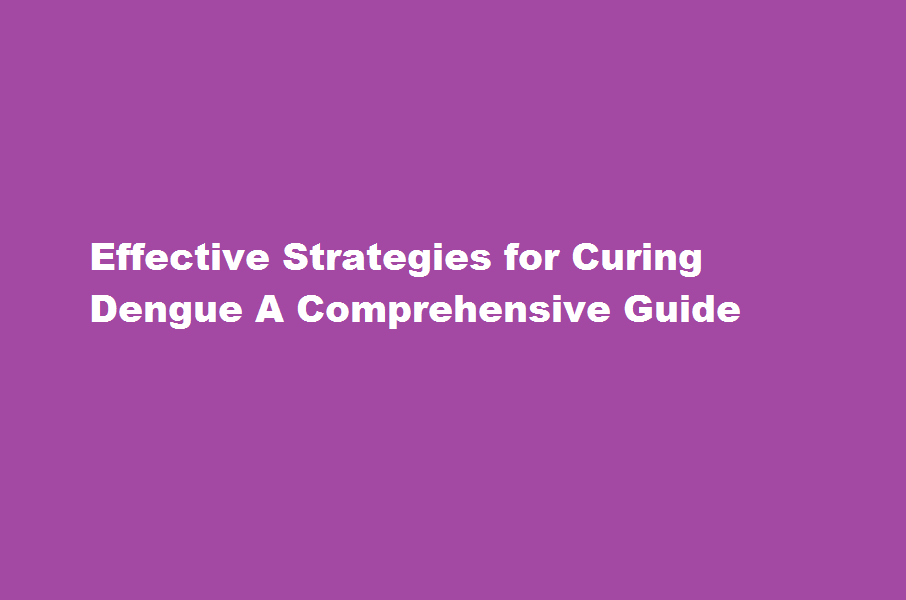Effective Strategies for Curing Dengue A Comprehensive Guide
3 min read
Introduction
Dengue, a viral infection transmitted by mosquitoes, continues to pose a significant global health threat. While prevention remains the best approach, understanding the available treatment options is crucial for managing dengue cases. In this article, we will explore effective strategies and medical interventions for curing dengue, focusing on supportive care, fluid management, symptom relief, and promising advancements in dengue treatment research.
Supportive Care
Supportive care plays a vital role in the management of dengue fever. Patients are advised to get plenty of rest, ensuring their body can focus on fighting the infection. Adequate hydration is essential, as dengue can cause severe fluid loss. Oral rehydration solutions (ORS) are recommended, consisting of water, electrolytes, and carbohydrates, to replenish lost fluids and maintain electrolyte balance. Intravenous fluid therapy may be necessary for individuals with severe dengue symptoms, such as persistent vomiting or decreased urine output.
Fever and Pain Management
Fever and joint/muscle pain are common symptoms of dengue. To alleviate fever, doctors may prescribe acetaminophen (paracetamol) while avoiding nonsteroidal anti-inflammatory drugs (NSAIDs) due to the risk of bleeding. Adequate fluid intake and sponge baths with lukewarm water can also help reduce fever.
Pain associated with dengue can be managed through the use of mild analgesics such as acetaminophen. NSAIDs should be avoided due to their potential to increase bleeding risk. Applying cold compresses to affected areas can provide temporary relief from joint and muscle pain.
Platelet Transfusion
In severe cases of dengue fever, low platelet count (thrombocytopenia) can occur, leading to a higher risk of bleeding. Platelet transfusion may be necessary to manage thrombocytopenia in patients with severe bleeding symptoms or platelet counts below critical levels. However, transfusions should be approached with caution and be based on a thorough assessment of the patient’s condition, as indiscriminate use can lead to adverse reactions and unnecessary complications.
Potential Advances in Treatment
While there is no specific antiviral medication for dengue, promising advancements in treatment options are being explored. Researchers are focusing on the development of antiviral drugs that can inhibit viral replication and reduce the severity of the disease. Several experimental antiviral drugs and vaccine candidates are currently under investigation, aiming to provide targeted treatment and long-term protection against dengue.
Frequently Asked Questions
Is dengue contagious from person to person?
No, dengue is not contagious and cannot be spread merely by person to person contact.
How many days will it take to completely cure from dengue?
Symptoms of dengue typically last 2–7 days. Most people will recover after about a week.
Conclusion
While prevention remains the key strategy in combating dengue, effective treatment approaches can significantly contribute to the recovery and well-being of affected individuals. Supportive care, including proper hydration and rest, is fundamental. Symptom relief through the management of fever and pain is crucial for patient comfort. Platelet transfusion should be reserved for severe cases based on careful assessment. Moreover, ongoing research and development efforts offer hope for improved antiviral medications and vaccines in the future.
In conclusion, a comprehensive approach to dengue management that combines supportive care, symptom relief, and cautious intervention can lead to positive outcomes and contribute to the overall fight against this global health challenge.
Read Also : Mastering French at Home Your Ultimate Guide to Effective Language Learning






